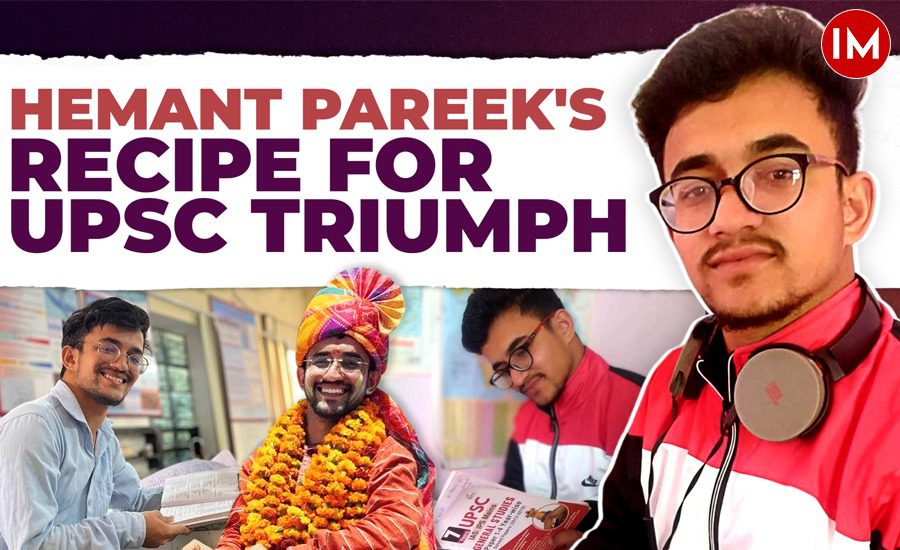Hemant Pareek, hailing from a rural family in Rajasthan, faced numerous challenges growing up. His mother, a laborer under the MNREGA scheme, was the family’s sole breadwinner, as his father, a priest, earned very little. Despite these hardships, Hemant dreamt of becoming an IAS officer and dedicated one year to preparation. With unwavering support from his family, friends, and community, he moved to Delhi and poured all his efforts into cracking the exam. His hard work paid off when he secured an All India Rank (AIR) of 884 in the UPSC Civil Services Examination (CSE).
However, his preparation didn’t begin in Delhi. During his second semester of college, Hemant decided to appear for the UPSC Civil Services Examination (CSE) and gradually started working towards his goal. In a conversation with Indian Masterminds, he explained his strategy for the Prelims, Mains, and Interview stages of the exam.
THE FIRST STEP
Mr. Pareek was initially clueless about the UPSC exam and lacked proper guidance. To navigate this, he began by following the strategies of past toppers. For the first few months, he only listened to their advice and noted down their strategies. Among them, he was particularly impressed by Shruti Jayant Deshmukh’s approach. Following her recommendations, he purchased all the suggested books.
As his knowledge of English was limited, he followed a senior’s suggestion to start with NCERT textbooks. “I began with the class 6th NCERTs because the English was basic, so I didn’t face many problems. I read the NCERTs from class 6th to 12th like novels, three times each. This helped improve my English,” Mr. Pareek explained.
Gradually, he began solving and researching previous years’ question papers (PYQs). Starting with the PYQs from 1970, he thoroughly researched all the incorrect options. This extensive research proved invaluable when he faced the actual Prelims. Mr. Pareek emphasized that every aspirant should pay particular attention to Science and Technology-related questions, as their weightage increases each year.
CHOOSING OPTIONAL
After finishing the NCERT textbooks, Mr. Pareek consulted the standard booklist, most of which were recommended by Ms. Deshmukh. He initially had no idea about which optional subject to choose. Assuming that sociology was the only optional, based on Ms. Deshmukh’s suggestions, he started reading sociology books.
Upon arriving in Delhi, he discovered that there were many other optional subjects available. However, by that time, he had developed a liking for sociology, so he decided to stick with it.
of preparation. He emphasized that the real interview is always conversational. “Even if you don’t know the answers to ten questions, they will ask you an eleventh one to analyze your personality,” he said. “If they don’t engage with you, how will they get that chance?”
Although Mr. Pareek felt his interview went well, he didn’t score high marks. While he wrote his Mains exam in English, he chose to switch to Hindi for the interview. Why did he make this change?
Watch the video below to find out.
































